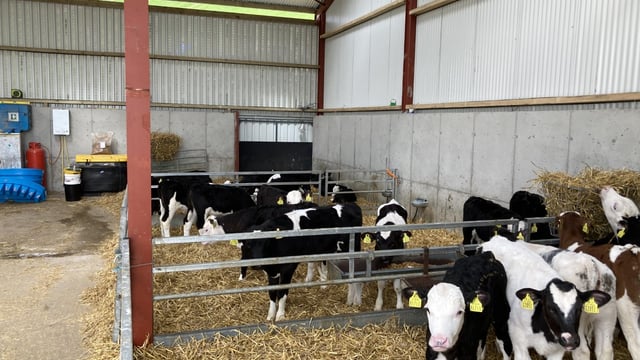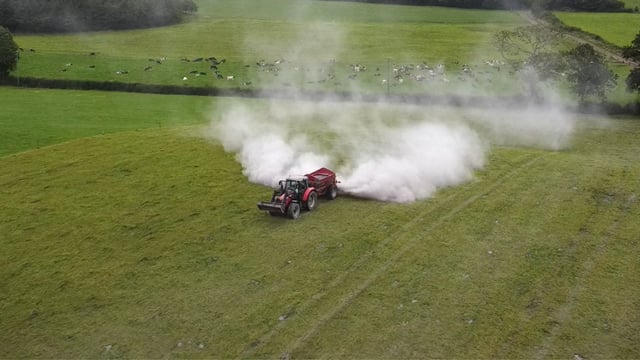Just transition for farmers 'crucial' to forestry - Trinity researcher
A graduate of Trinity College Dublin who has completed a research thesis on forestry has called for a "just transition" to get more farmers to plant trees and meet Ireland's forestry cover targets.
Elizabeth Rymut's thesis was on analysing how Irish landowners can be incentivised to plant forests, and whether the Native Woodland Conservation Scheme is effectively aiding landowners in a just transition.
Writing on the Trinity website, Rymut said that forestry in Ireland "remains an economically, politically, and socially tortuous concept".
"Driving planting efforts for over 40 years, farmers have contributed 4% to the current national forest cover of approximately 11.7%. However, challenges remain in encouraging landowners to plant native woodland.
According to Rymut, the Native Woodland Conservation Scheme - called the Native Woodland Scheme when it was first introduced in 2001 - was unique in its focus on restoring native woodland.
However, she noted that the scheme has struggled to meet targets, in part due to the prohibition on clear felling, which removed the possibility of timber production and thus takes away a potential financial opportunity for landowners.
"It has also been difficult for planters to envision the positive impacts of native planting, as full results may take up to 50 years," the Trinity graduate said.
"Historically, forestry has competed with agriculture production, a sector remaining of high national value today and requiring over 60% of land use. Farming itself is a generational activity, which has been supported by government direction to expand for economic benefit.
Rymut said that afforestation has been identified as a vital solution to mitigating the impact of greenhouse gas (GHG) emissions.
"Through a process called carbon sequestration, trees absorb carbon dioxide from the atmosphere and sequester it in its biomass and roots," she said.
She also said that native woodland has the capacity to increase biodiversity; protect ecosystems; improve water and soil quality; and to "encourage cultural connection".
Without planting efforts from farmers, it is likely targets for native woodland cover will remain unmet. Thus, a just transition is a crucial solution for transitioning the forestry and agriculture sectors together.
"Ultimately, a rightful, just transition should be rooted in equity and justice and uphold the rights of people during a period of societal transition," Rymut said.
That just transition, she said, would mean protecting a farmer's livelihood and lifestyle while preserving an important economic system.
A just transition would also entail creating trust between officials and farmers, Rymut said.
She suggested the founding of a designated group to connect with farmers and local communities for direct feedback, and incorporating their responses into decision-making.
"More largely, increasing climate communications – sharing accessible information on climate change and environmental challenges – should be considered to organise national action toward meeting environmental goals, including for meeting forestry targets," she said.
"Forestry can be a useful and transformative agent in evolving agriculture and farming systems in Ireland. The bountiful benefits of farm forestry and agro-forestry – combining forestry on farmland with crops and livestock – is promising," she added.
"Modifying the traditional farming lifestyle can increase food production, ensure food security, enrich soil nutrients, reduce labor intensity and provide shelter for livestock.
"Committing to aiding farmers through equity and justice allows for native woodland across Ireland to flourish. Restoring national native woodland not only repairs biodiversity, ecosystems and the land, but also confidence in our systems and communities. Farmers deserve nothing short of a just transition," Rymut said.
Prof. Fraser Mitchell from Trinity's School of Natural Sciences, who supervised Rymut's postgraduate studies, said: "The Native Woodland Scheme has the potential to address multiple environmental challenges that we face. Elizabeth’s research has uncovered, and articulated, the challenges that are hindering us in meeting this potential.
"She has clearly demonstrated that the current fiscal system, which was adopted from commercial forestry, is a critical barrier to the wider adoption of the Native Woodland [Conservation] Scheme by farmers," Prof. Mitchell added.





